第82章 CHAPTER XIV CIVIC COOPERATION(2)
Several of these earlier attempts at civic cooperation were undertaken in connection with the Hull-House Men's Club, which had been organized in the spring of 1893, had been incorporated under a State charter of its own, and had occupied a club room in the gymnasium building. This club obtained an early success in one of the political struggles in the ward and thus fastened upon itself a specious reputation for political power. It was at last so torn by the dissensions of two political factions which attempted to capture it that, although it is still an existing organization, it has never regained the prestige of its first five years. Its early political success came in a campaign Hull-House had instigated against a powerful alderman who has held office for more than twenty years in the nineteenth ward, and who, although notoriously corrupt, is still firmly intrenched among his constituents.
Hull-House has had to do with three campaigns organized against him. In the first one he was apparently only amused at our "Sunday School" effort and did little to oppose the election to the aldermanic office of a member of the Hull-House Men's Club who thus became his colleague in the city council. When Hull-House, however, made an effort in the following spring against the re-election of the alderman himself, we encountered the most determined and skillful opposition. In these campaigns we doubtless depended too much upon the idealistic appeal for we did not yet comprehend the element of reality always brought into the political struggle in such a neighborhood where politics deal so directly with getting a job and earning a living.
We soon discovered that approximately one out of every five voters in the nineteenth ward at that time held a job dependent upon the good will of the alderman. There were no civil service rules to interfere, and the unskilled voter swept the street and dug the sewer, as secure in his position as the more sophisticated voter who tended a bridge or occupied an office chair in the city hall. The alderman was even more fortunate in finding places with the franchise-seeking corporations; it took us some time to understand why so large a proportion of our neighbors were street-car employees and why we had such a large club composed solely of telephone girls. Our powerful alderman had various methods of entrenching himself. Many people were indebted to him for his kindly services in the police station and the justice courts, for in those days Irish constituents easily broke the peace, and before the establishment of the Juvenile Court, boys were arrested for very trivial offenses; added to these were hundreds of constituents indebted to him for personal kindness, from the peddler who received a free license to the businessman who had a railroad pass to New York. Our third campaign against him, when we succeeded in making a serious impression upon his majority, evoked from his henchmen the same sort of hostility which a striker so inevitably feels against the man who would take his job, even sharpened by the sense that the movement for reform came from an alien source.
Another result of the campaign was an expectation on the part of our new political friends that Hull-House would perform like offices for them, and there resulted endless confusion and misunderstanding because in many cases we could not even attempt to do what the alderman constantly did with a right good will.
When he protected a law breaker from the legal consequences of his act, his kindness appeared, not only to himself but to all beholders, like the deed of a powerful and kindly statesman. When Hull-House on the other hand insisted that a law must be enforced, it could but appear like the persecution of the offender. We were certainly not anxious for consistency nor for individual achievement, but in a desire to foster a higher political morality and not to lower our standards, we constantly clashed with the existing political code. We also unwittingly stumbled upon a powerful combination of which our alderman was the political head, with its banking, its ecclesiastical, and its journalistic representatives, and as we followed up the clue and naively told all we discovered, we of course laid the foundations for opposition which has manifested itself in many forms; the most striking expression of it was an attack upon Hull-House lasting through weeks and months by a Chicago daily newspaper which has since ceased publication.
During the third campaign I received many anonymous letters--those from the men often obscene, those from the women revealing that curious connection between prostitution and the lowest type of politics which every city tries in vain to hide.
I had offers from the men in the city prison to vote properly if released; various communications from lodging-house keepers as to the prices of the vote they were ready to deliver; everywhere appeared that animosity which is evoked only when a man feels that his means of livelihood is threatened.
As I look back, I am reminded of the state of mind of Kipling's newspapermen who witnessed a volcanic eruption at sea, in which unbelievable deep-sea creatures were expelled to the surface, among them an enormous white serpent, blind and smelling of musk, whose death throes thrashed the sea into a fury. With professional instinct unimpaired, the journalists carefully observed the uncanny creature never designed for the eyes of men; but a few days later, when they found themselves in a comfortable second-class carriage, traveling from Southampton to London between trim hedgerows and smug English villages, they concluded that the experience was too sensational to be put before the British public, and it became improbable even to themselves.